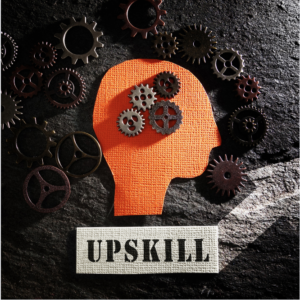Gap year appeal grows
University straight from high school is but one option, writes Julia Stirling. You can take a year off first, or start and then take some time out.
CHOOSING a career path can be a confusing and daunting experience for school leavers, but with the rising cost in tertiary education the stakes are high.
When Gemma Sherry completed Year 12 in Victoria in 2001, she had her heart set on a career in music. A talented saxophonist and vocalist, she had been playing professionally in big bands and small jazz ensembles since she was 12. After she secured a place at the Conservatorium at the University of Melbourne, she decided to defer and opt for a gap year.
“I would definitely recommend deferring because it gets you on your feet a bit more, makes you a bit more independent from your parents, you can save money, you can have a bit more time to think about what you want to do with your life,” she says.
Sherry worked full-time during her year away from studies, so she could help contribute towards education and living away from home expenses for the following year.
There are many books on how to spend a gap year. Even Lonely Planet has put a book out — The Gap Year Guidebook: the definitive guide to planning taking a year out. Many students are seeing a gap year as part of the trajectory towards making the right career choice. It gives them a chance to experience the world outside school before committing to a career path.
Some students sign up for organised programs overseas, where they work in a voluntary capacity or for a small income with lodging and food supplied. Others work for a period of time before they organise their own form of independent travel. Staying close to home is a necessity for some, who work for a year to help with educational costs incurred the following year, when they start tertiary education.
So what are the pros and cons of choosing to defer for a year, and how would a student know if it was the right decision for them? Indeed, can an 18-year-old be expected to know what career path is right for them?
“It’s very individual and I wouldn’t think one size fits all,” says Jenny English, a senior counsellor at Deakin University with 19 years experience in the field. She co-authored with Jean Edwards Into Adulthood: a parents’ guide to life with an 18- to 25-year-old student.
She says her experience over the years as a counsellor tells her that in some ways we are asking 18-year-olds to do the impossible. “This age stage is about identity formation. It would be psychologically impossible for an 18-year-old to have their identity formed … it takes the next seven to eight to 10 years to develop a sense of who they are so they can make a decision at 18 about where they go and what they want to do, but it’s only based on rudimentary psychological foundations.
“I do think one of the pros (to deferring) is time away from study. For lots of students Year 12 is a very full-on year, and there is a lot attached to that tertiary entrance score and a lot of stress and pressure at the same time they are turning into young adults. They’re turning 18 and the hormones are working overtime. They can finish quite burnt out, so I think time away from study can be really beneficial. It can reduce that burnout.
“I think, also, you can’t underestimate the importance of earning money, and that can do a lot of things. It can help with that beginning of independence from the family, it can fund university costs or HECS if you want to pay up front — there are advantages to that,” she says.
English says students can return to studies feeling refreshed and with a clearer picture of why they are doing it. “It’s because they really want to, not just because it’s the next step in the line. It encourages people to think laterally, not in a linear way. You go to kindergarten, primary school, secondary school, high school, university and work — it’s a very linear progression and life is really not like that. So it helps to think a bit more broadly about your life experience.”
But deferring is not for everyone, and English says one of the biggest things against it is that your current peer group moves on. Many students need the security of their peers, and English says there is quite a gap in maturity between an 18- and a 19-year-old.
One of the concerns parents have about their children deferring is that they will lose motivation, and never return to study. “What we can never know is if they went to university, would they have lasted? And I have a bit of a hunch that those that never return might never have done the distance,” English says.
Anne Stansfeld, manager of career development course and careers services at La Trobe University, says it’s probably important for students to go straight into their studies if they feel ready, are motivated, and know the career path they want to take. She says students who take a year off because they’re unsure of their direction should use the year productively.
“They need to start thinking more closely about who they are and what suits them. Really getting to know themselves is one part of the equation. The other part is actually exploring what career options are out there, and then trying to think about what kinds of skills and values are going to be embodied in those career options, and how they fit with their own personal profile.”
She says talking to people, exploring the web, looking at the job guide and job advertisements, exploring the content and not just the title, are some of the ways that can help students choose a career path.
“What are the skills that are required in those occupations? What training is necessary, and what are they going to be doing on a daily basis? From there they can sometimes work back and work out what course would suit them best.”
Sherry’s first year at university wasn’t what she’d expected. “I was really excited about going there, but there was too much theory and they didn’t have enough ensembles for me to be part of,” she says. After her first year, she made the difficult decision to change career paths and enrolled as a full-fee paying student in primary education at the Australian Catholic University. She is currently in her third year of studies and works 20 hours a week in a library to help with educational expenses.
In the report Trends in the First Year Experience in Australian Universities put out by the University of Melbourne, research shows that in 1999 one in five students hoped to change their course after first year, and about one-third of first year students considered deferring during their first semester.
Changing your career path at university is a very common thing, says English, and that’s why general arts degree or science degrees “are such terrific pathways”.
“Students can try a range of subjects and disciplines and get to know themselves in the university environment before they have to make a more refined choice, whereas at 17 to choose a course like architecture, or medicine, or engineering, you’re down a pathway very early and they’re very long courses.”
For this interview, English took a straw poll among her friends whose young adult children attend university. “Lots of students who were two or three years in said do first year, get it under your belt and take the next year off, which I thought was interesting. They were saying go with your peer group, get a bit of confidence, know what uni is about, know what you like and don’t like about uni and the course you’ve chosen — then have a year off. Earn some money, then go back and do the downhill run in the second and third year,” she says.
Sherry strongly believes it’s okay to change your mind about the course you are doing. She has no regrets about her course change but says, “even now I still have doubts, which I think everybody does in any career. You should never feel any pressure that you are boxed into that one career for the rest of your life.”



